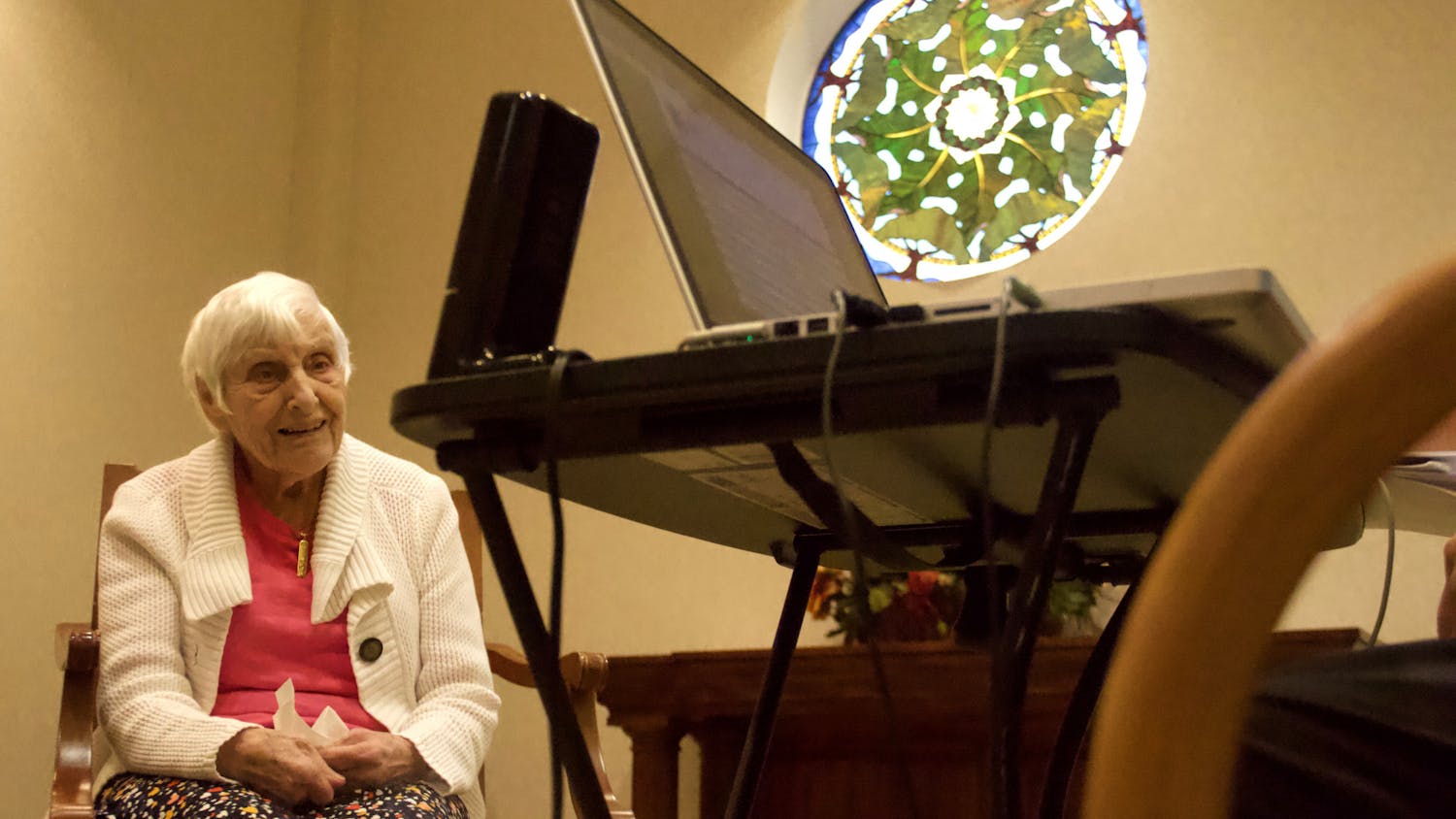Cognitive researchers will no longer have to drive their subjects in golf carts across campus to use an MRI scanner.
Two new laboratories in the UF McKnight Brain Institute expand the space for different researchers to use, centralizing them in one building, said Dr. Steven DeKosky, a neurologist and the deputy director of the McKnight Brain Institute.
The institute, located at 1149 Newell Drive, will conduct research on memory loss in aging adults, neurodegenerative diseases and more.
Along with the two new laboratories, old conference rooms on the ground floor of the institute were refurbished into assessment rooms, an electrophysiology lab and an electrical brain stimulation lab. A new phlebotomy lab, or blood-drawing lab, was also added.
The renovation cost about $400,000 and was funded by the institute, DeKosky said.
DeKosky said the new space in the institute was convenient and let the board of the institute design the space for the most efficient work.
“We were lucky that we had the space,” DeKosky said. “We were able to bring it down to exactly the specifications that the researchers need.”
The goal of the new labs was to place assessment rooms close to the MRI scanners, DeKosky said.
“If you’re going to test people in a reasonably easy fashion, it’s always nice to have them only come to one place,” DeKosky said.
The Center for Cognitive Aging and Memory, which is funded by the McKnight Brain Research Foundation, examines brain changes in aging adults and neurodegenerative diseases such as Alzheimer’s disease, said Dr. Ronald Cohen, the director of the center.
The center’s researchers had trouble with the lack of space for their patients. It was hard to compete for rooms in their previous building, Cohen said. Now, with the new labs, they have more space for their research.
“It was important to have space right (in the McKnight Brain Institute) that was a part of the institute as opposed to some other location,” Cohen said.
Having assessment rooms close to scanners and a blood-drawing lab made the transition into the new center positive, Cohen said.
Cohen said the new research center will contribute to translation of successful cognitive aging, which adapts studies on animals and applies it to human subjects.
“We’re studying people who are showing cognitive changes associated with aging that are more typical and try to understand what’s contributing,” Cohen said. “We want to understand what contributes to age-related brain changes and also to do something about it.”





